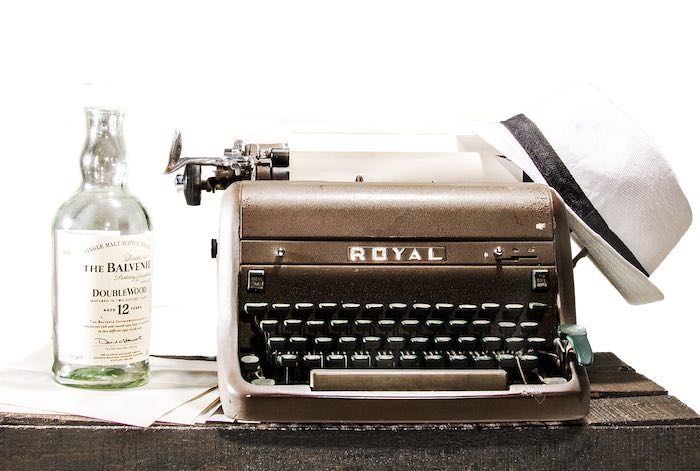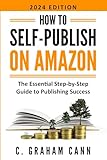Reading
"Read, and refine your appetite; learn to live upon instruction; feast your mind, and mortify your flesh; read, and bake your nourishment in at, your eyes; shut your mouth, and chew the cud of understanding."

Some books are to be tasted, others to be swallowed, and some few to be chewed and digested.—Bacon.
<>Henry Ward Beecher said: "I read for three things— first, to know what the world has done in the last twenty-four hours and is about to do to-day; second, for the knowledge which I speqially want to use in my work; and, third, for what will bring my mind into a proper mood. Different authors produce different effects upon my mind. Amongst the authors whom I frequently read are De Tocqueville, Matthew Arnold, Madame Guyon, and some of the old religious writers—some of the mystical ones.""Do you ever read for style?" Mr. Beecher was asked. "No," he answered.
"What is your advice to young men in regard to doing so?" "I think a young man might read for style profitably; but, after all, reading for style is a very limited function after a man gets ideas. The best essay on style that I know is "that by Herbert Spencer; and every young man ought to get it, read it, and practice it. He says that is the best style which takes the thought or feeling or fancy of the speaker, and has the power of reproducing it on the retina of another person's mind. Though the manner and moods of doing this may vary in detail, there are certain great fixed principles that do not vary. First among these Herbert Spencer places this: That it is to be done with the least possible labor to the person receiving the idea; and in this respect he is directly opposed to Coleridge, who puts forward the theory that a man who has to dig for knowledge gets more benefit than one who acquires it without the trouble of digging.
"Milton gave me a conception of power and vigor which otherwise I should not have had," continued Mr. Beecher. "I got fluency out of Burke very largely, and I obtained the sense of adjectives out of Barrow. He possesses that rare spirit of being exhaustive, but never exhausting."
Mr. Beecher also urges the reading of history. "Although," he says, "I don't believe much in it, as it is a very imperfect testimony of men's natures and thoughts, and gives one-sided views of their actions."
Samuel Johnson says that "Interest is the mother of attention." Joseph Cook says, "Attention is the mother of memory. To secure memory, therefore, secure its mother and grandmother. Do not neglect his grandparent." Dr. Macaulay once remarked, in conversation with Mr. Beecher, that when he was a boy at college he began to read enthusiastically, and at the foot of every page he read he stopped and obliged himself to give an account of what he had read on that page. At first he says that he had to read it three or four times before he got his mind firmly fixed. But by rigorously compelling himself to conform to the process, he was able, after a short time, to almost recite it from beginning to end. "It is," said Mr. Beecher, "a very simple habit to form early in life, and is invaluable for acquiring accuracy and thorough knowledge of the material with which a man has to deal.""When one is absorbingly interested in a theme," says Joseph Cook, "the mind becomes strangely receptive, and draws to itself, as a magnet gathers up iron filings, all information within its reach as to the topic in hand. The best rule for the acquisition and preservation of information is to make the mind magnetic by acquiring profound interest in the theme, Possibly your intellectual enthusiasm may limit itself to one topic for a long while. Endeavor, therefore, to excite yourself in two enthusiasms, in order that there may be a north and south pole in the magnet of your intellect. Two subjects will be likely to draw into connection with themselves a range of reading which will be something like what the Jordan is in the northern half of the Dead Sea—a current of perfectly fresh water in the midst of bitter waves. You may have, as Ruskin says, 'A little island of your own, with a grove and a spring on it, sweet and good,' while the waste, howling ocean of the world's information rolls around you."
The best way to keep abreast of the progress of the age is through the magazines and newspapers. The brightest thought of the day ofttimes brightens the magazine pages. Do not limit yourself to one paper, but read as many as possible. One of the most essential points is to know what to read and what to leave out. Webster-says, "A magazine is a storehouse, a granary, a cellar, a warehouse in which anything is stored or deposited." Johnson says, "These papers of the day have uses more adequate to the purposes of common life than more pompous and durable volumes." And Lamartine exclaims, "Before this century shall run out, journalism will be the whole press. Mankind will write their book day by day, hour by hour, page by page. Thought will spread abroad with the rapidity of light; instantly conceived, instantly written, in-slantly understood at the extremities of the earth; it will spread from pole to pole, suddenly burning with the fervor of soul which made it burst forth; it will be the reign of the human mind in all its plentitude; it will not have time to ripen, to iircumulate in the form of a book; the book will arrive too late; I he only book possible from day to day is a newspaper."
The world has never known such storehouses of well-selected mental food as are furnished by our American publishers. The foremost writers of the day are among the contributors. "The magazine skims the cream from many a pen, and gives it, to its readers."
It is stated that over two-thirds—aye, nearly three-fourths —of the books drawn from the public libraries of America are novels. Is it as Thackeray says: "Novels are sweet. All people with healthy literary appetites love them; almost all women; a vast number of clever, hard-headed men—judges, bishops, chancellors, mathematicians—are notorious novel readers, as well as young boys and sweet girls, and their kind, tender mothers." Or is it as Balzac tells us: "We must have books for recreation and entertainment, as well as books for instruction and business; the former are agreeable, the latter useful; and the human mind requires both. The Canon Law and the Codes of Justinian shall have due honor and reign at the universities, but Homer and Virgil need not therefore be banished. We will cultivate the olive and the vine, but without eradicating the myrtle and the rose."
If you are not attracted by any consecutive plan of reading, become familiar with the great books of the world—"those that men will not let die." A first-class way to become familiar with them is through the series of "Foreign Classics," edited by Mrs. Oliphant, together with the series of "English Men of Letters," and "Ancient Classics for English Readers," edited by Collins. Many suggestions can also be obtained from "The Library of American Literature," edited by Edmund Clarence Stedman and Ellen Mackay Hutchinson. It is unnecessary to read the entire works or collections ; read portions from each. Everybody should read of Plato, the "Apology of Socrates," as well as the great poets—Homer, Sophocles, Virgil, Dante, Shakespeare, and Milton.
It is also well to become thoroughly acquainted with De Quincey's distinction between the "literature of knowledge" and the "literature of power," as well as between Ruskin's "Books of the Hour" and "Books of All Time." The former is found in De Quincey's "Letters to a Young Man whose Education has been Neglected"; the latter in Ruskin's "Sesame and Lilies," in the lecture on Kings' Treasuries.
A few hints in regard to reading may not be amiss: Remember it is out of the question to read everything.
Remember history is the backbone. (Natural science excepted.)
Use amusing reading with moderation.
Read the great books.
Be careful in your selection of periodicals.
Read the newspapers cautiously.
The reader must remember that, as Montesquieu says, "The love of reading enables a man to exchange the wearisome hours of life, which come to every one, for hours of delight."
The advice of Congreve must not pass by unheeded: "Read, and refine your appetite; learn to live upon instruction; feast your mind, and mortify your flesh; read, and bake your nourishment in at, your eyes; shut your mouth, and chew the cud of understanding."Read These Next
Marketing to Libraries
Don’t discount libraries as a source of steady orders for your books. U.S. libraries spend over 700 million dollars annually on print materials.
Media Coaching is Critical to Book Marketing and Book Publicity
Landing an interview is great, but authors must keep sight of the goal, which is not to get interviewed but to sell books. The skills needed to generate sales from interviews are best obtained through media coaching or media training.
Beginning and Ending Your Story
Elinor Glyn, in the early half of the 20th century, considered the "world’s greatest writer of love stories." Over the course of her writing career she published 31 novels and had 9 movies made from her work. She was criticized rather frequently by the literary press, as are many popular writers today. In 1922, The Author’s Press put out a four volume course written by Glyn on how to write novels, stories and screen plays. This is an excerpt from the second volume.







 Self-Publishing for Dummies (For Dummies: Learning Made Easy)
Self-Publishing for Dummies (For Dummies: Learning Made Easy) Write. Publish. Repeat. (The No-Luck-Required Guide to Self-Publishing Success)
Write. Publish. Repeat. (The No-Luck-Required Guide to Self-Publishing Success) Self Publishing To Amazon KDP In 2024 - A Beginners Guide To Selling E-books, Audiobooks & Paperbacks On Amazon, Audible & Beyond
Self Publishing To Amazon KDP In 2024 - A Beginners Guide To Selling E-books, Audiobooks & Paperbacks On Amazon, Audible & Beyond How to Self-Publish Your Book: A Complete Guide to Writing, Editing, Marketing & Selling Your Own Book
How to Self-Publish Your Book: A Complete Guide to Writing, Editing, Marketing & Selling Your Own Book Self Publishing To Amazon KDP In 2023 - A Beginners Guide To Selling E-books, Audiobooks & Paperbacks On Amazon, Audible & Beyond
Self Publishing To Amazon KDP In 2023 - A Beginners Guide To Selling E-books, Audiobooks & Paperbacks On Amazon, Audible & Beyond Self-Publishing: The Secret Guide To Becoming A Best Seller (Self Publishing Disruption Book 2)
Self-Publishing: The Secret Guide To Becoming A Best Seller (Self Publishing Disruption Book 2) How to Self-Publish on Amazon: The Essential Step-by-Step Guide to Publishing Success
How to Self-Publish on Amazon: The Essential Step-by-Step Guide to Publishing Success Self-Publisher's Legal Handbook: Updated Guide to Protecting Your Rights and Wallet
Self-Publisher's Legal Handbook: Updated Guide to Protecting Your Rights and Wallet 14 Steps to Self-Publishing a Book
14 Steps to Self-Publishing a Book Self-Publishing Simplified: How to Publish a Book on Amazon KDP for Beginners
Self-Publishing Simplified: How to Publish a Book on Amazon KDP for Beginners